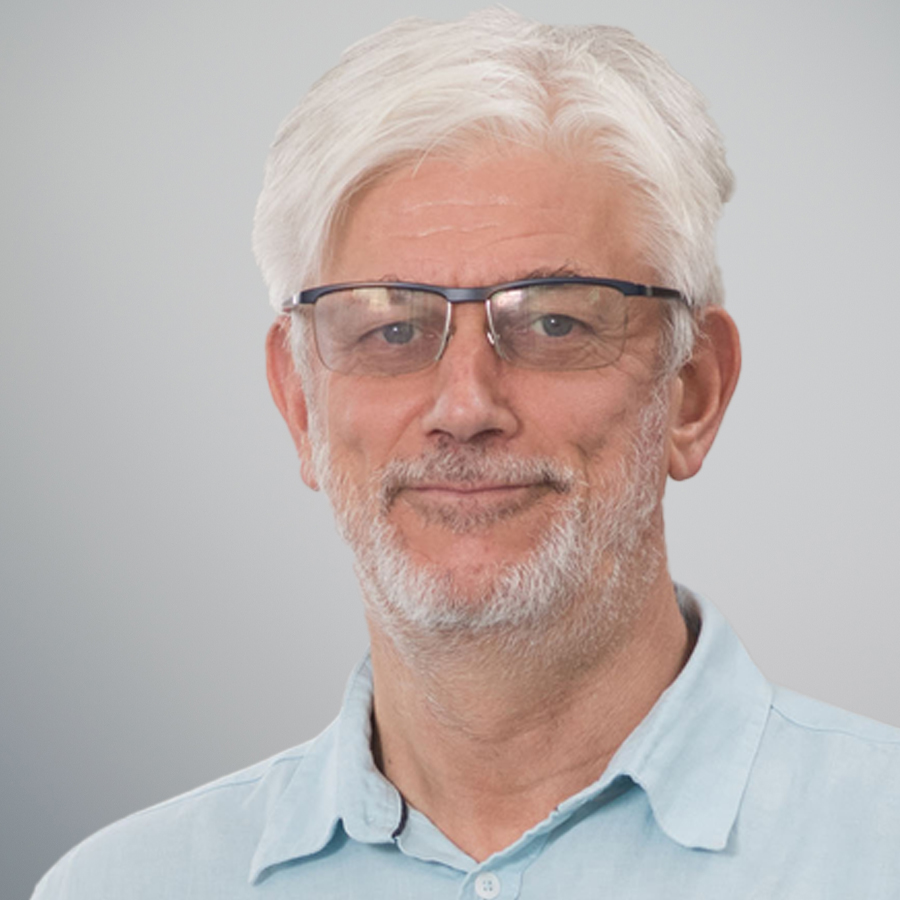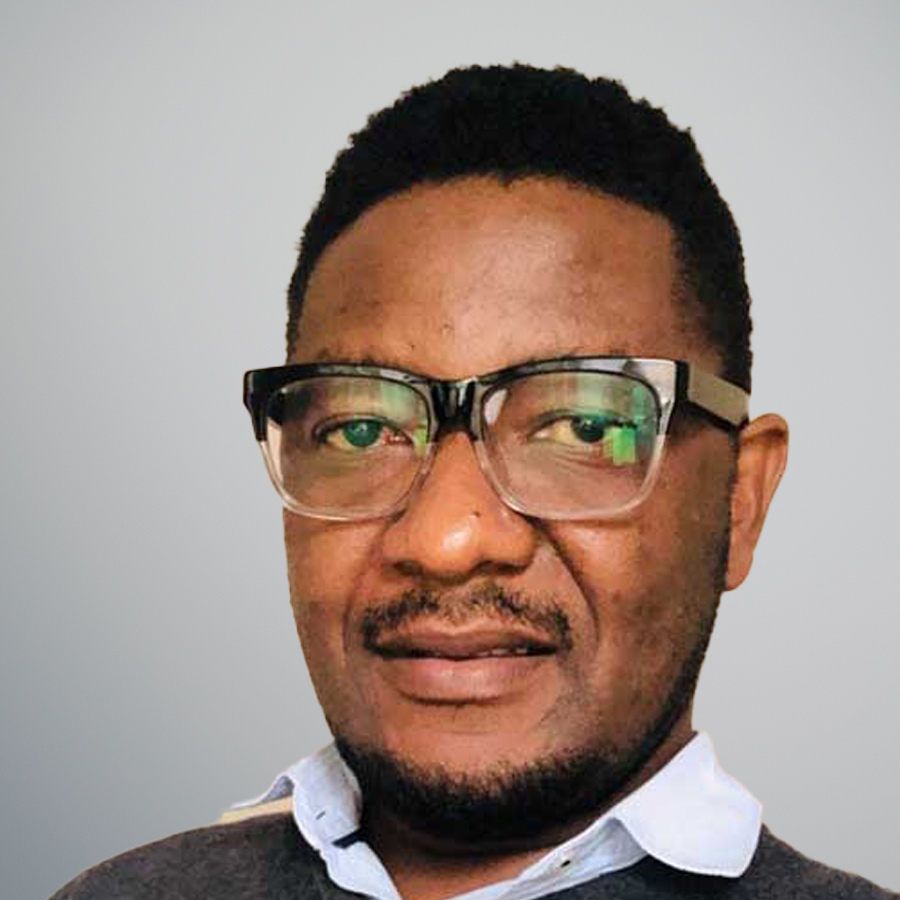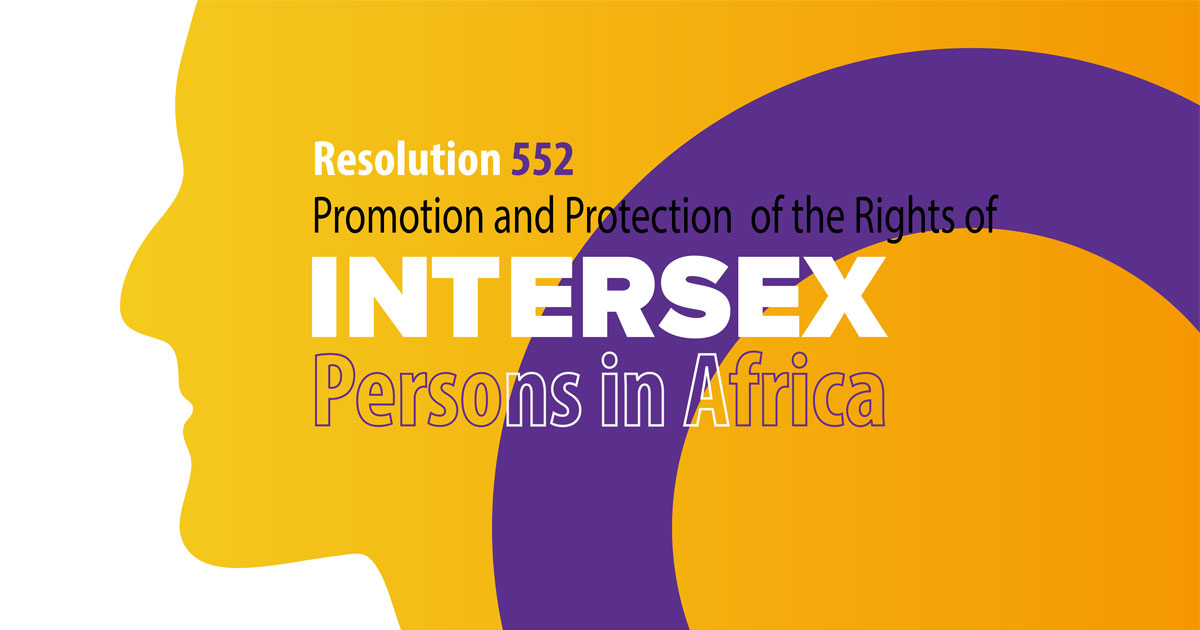On 2 May 2023, the Centre for Human Rights, Faculty of Law, University of Pretoria, hosted a hybrid side event on Resolution 552 on the Protection and Promotion of the Rights of Intersex persons in Africa. The side event was hosted at the 75th Session of the African Commission on Human and Peoples’ Rights (ACHPR/the African Commission), as part of the Centre’s continued regional engagement on the rights of LGBTQI+ people in Africa. The side event was organised by the SOGIESC (Sexual Orientation, Gender Identity and Expression, and Sexual Characteristics) Unit in collaboration with the Africa Civil Society Engagement (ACSE). It was attended by numerous civil society organisations, human rights scholars, and activists from within and outside Africa.
Resolution 552 on the Promotion and Protection of the Rights of Intersex Persons in Africa was adopted on 7 March 2023 in line with the African Commission’s mandate under Article 45 of the African Charter to interpret the rights in the Charter. The Resolution was adopted with the realisation that intersex persons in Africa face human rights violations in the form of unnecessary genital ‘normalising’ surgeries on minors, a lack of appropriate legal recognition and poor birth registration processes, discrimination in the justice system, infanticide, baby dumping and various forms of discrimination in other spheres of life.
The side event focused on the meaning of Resolution 552 in terms of the obligations of states and the responsibilities of non-state actors under the African Charter on Human and Peoples’ Rights (the African Charter) regarding intersex persons in Africa. The Centre reiterated that alongside Resolution 275, Resolution 552 is a great millstone in the promotion and protection of the rights of intersex persons on the continent as it recognises the complex and unique challenges that intersex persons face in Africa. The Centre further elaborated on the rights of intersex children emphasising that states have an obligation to ensure that harmful cultural and social practices against intersex children, as well as infanticide, abandonment and rejection, are eradicated. This can be done through enabling legislation, public awareness and sensitisation programmes to correct the mischaracterisation of intersex persons as a bad omen or curse on the family.
Participants also expressed hope that Resolution 552 would enhance the promotion and protection of the rights of intersex persons in Africa. However, concerns were raised over the language in Resolution 552 that describes intersex persons as being ‘born with an inherent handicap’ as this may perpetuate the pathologisation of intersex persons and serve as a justification for non-consensual, unwarranted and harmful medical procedures. Participants thanked the Centre for the side event and called for continued dialogue and sensitisation on the meaning of Resolution 552 for state and non-state actors.
For more information please contact:

Professor of International Human Rights Law
Tel: +27 (0) 12 420 3228
Fax: +27 (0) 86 580 5743
frans.viljoen@up.ac.za

Acting Manager: SOGIESC Unit
Tel: +27 (0) 12 420 4397
Fax: +27 (0) 86 580 5743
landilani.banda@up.ac.za


